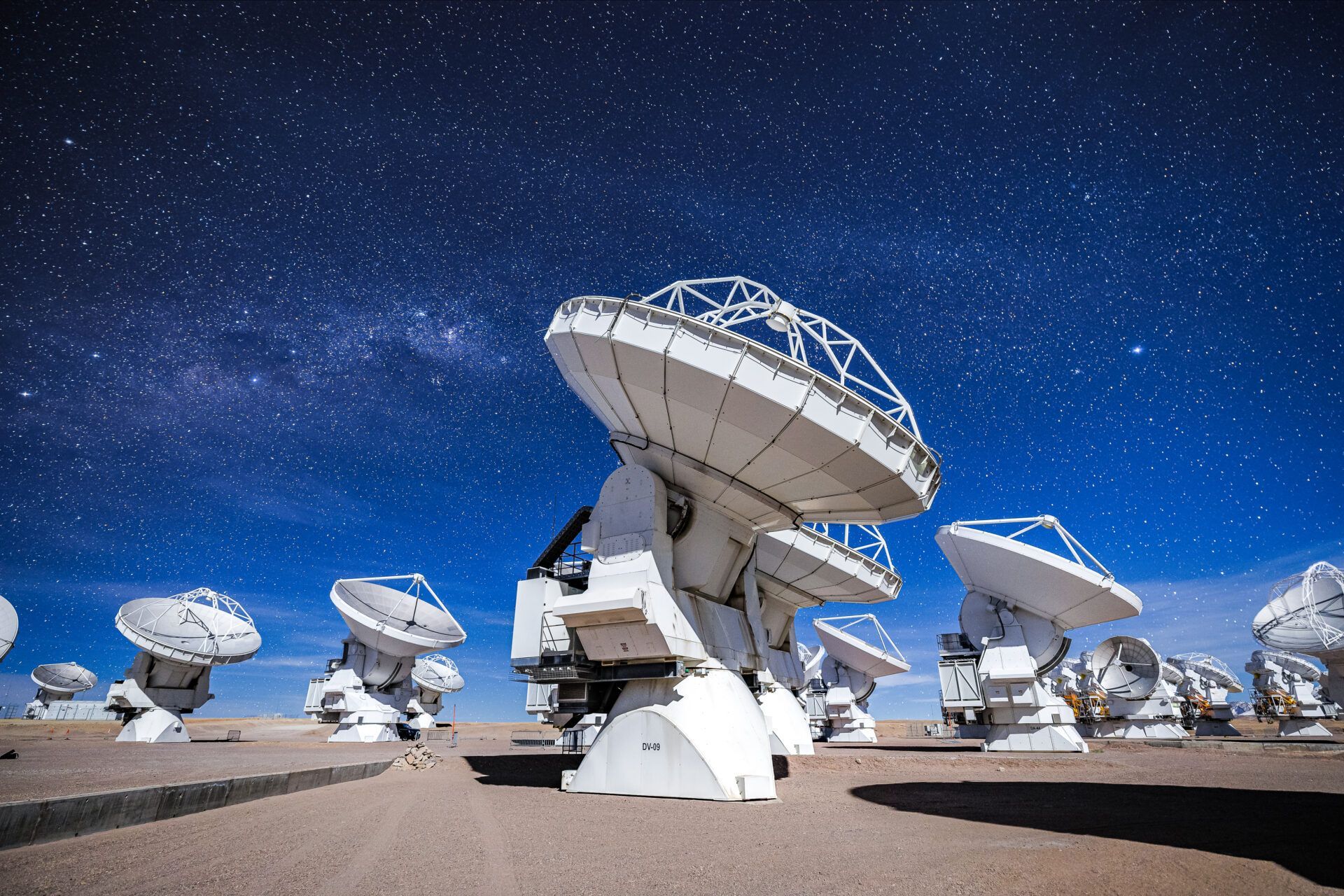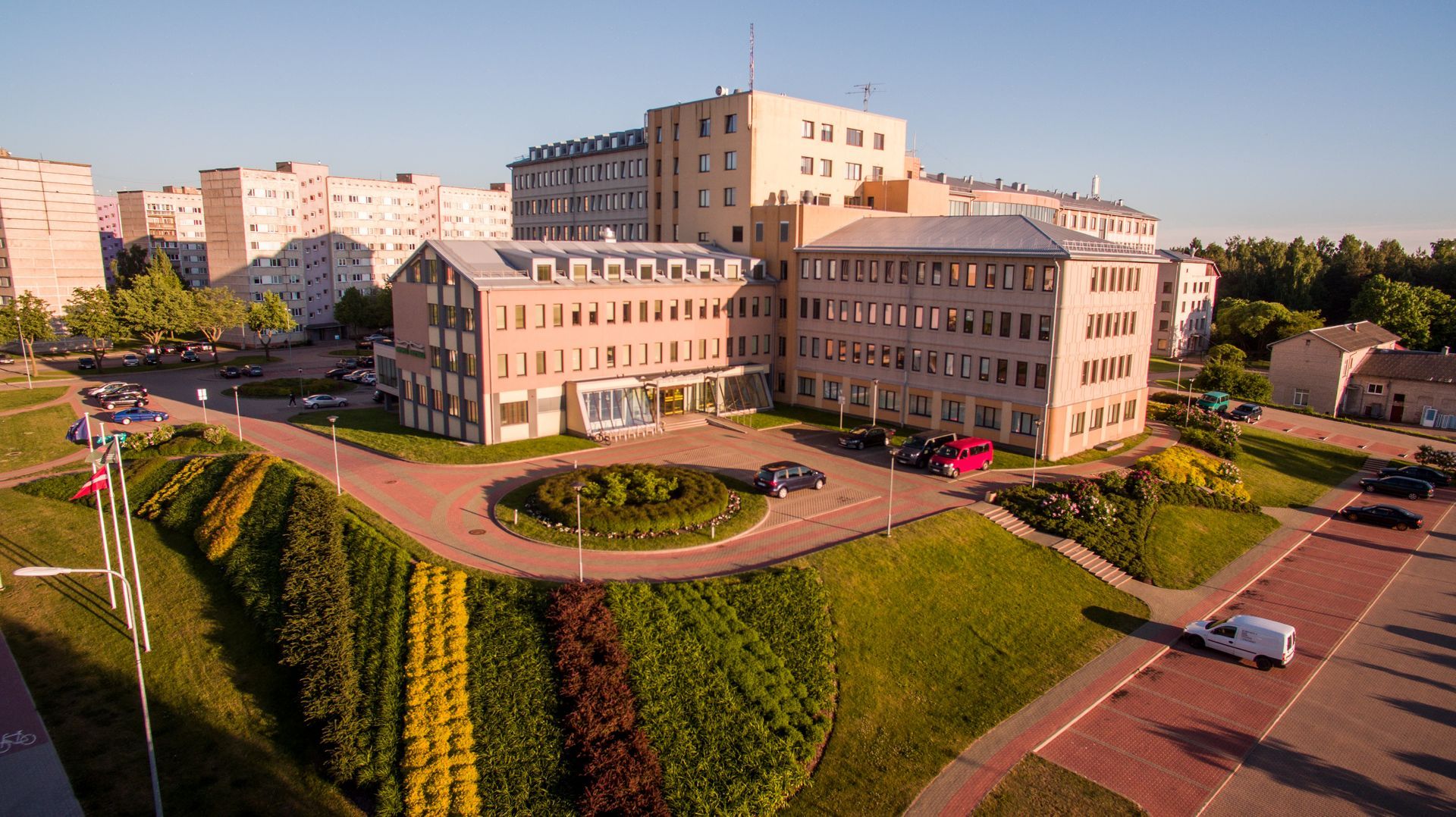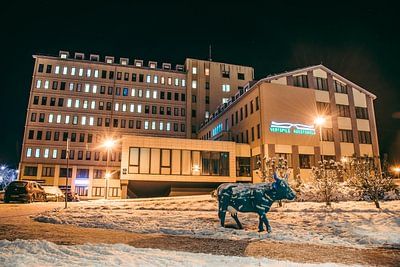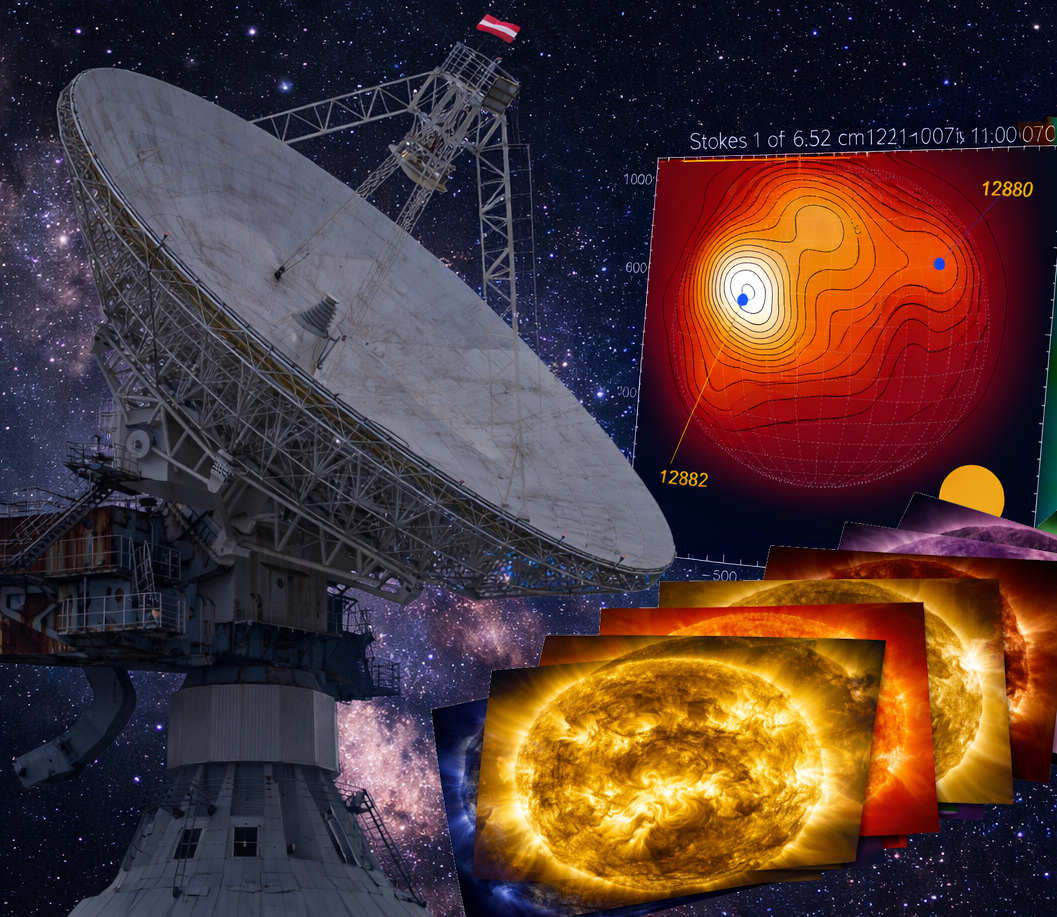A summary of the implementation of the plan of the project “Support for Preparation of Ventspils University of Applied Sciences International Cooperation Projects in Research and Innovations (ATVASE)”
On 30 June 2021, another six months of the implementation of the project “Support for Preparation of Ventspils University of Applied Sciences International Cooperation Projects in Research and Innovations (ATVASE)” (project No. 1.1.1.5/18/I/009) at Ventspils University of Applied Sciences have passed. Several activities have been implemented during the last six months. Due to the Covid19 pandemic, all business trips have been cancelled, so all activities have been carried out
remotely on online platforms.
Activity 1.2. Business trips for the preparation of “Horizon 2020” and European Union’s 9th Framework Programme international cooperation projects
09-10.03.2021 The director of VIRAC participated in the remote conference “Paris Space Week 2021”. This conference is dedicated to business meetings, exhibitions and innovation challenges in the space industry. Paris Space Week is “The Networking Place” where companies, space agencies, start-ups, buyers and investors in the space industry from all over the world, through prescheduled qualified leads, take part in our innovation challenges, listen to our conferences and share their innovative products. At this event, A. Klokovs had organised 12 One2One meetings with the representatives of the space industry to make contacts, promote VIRAC and build international
cooperation in projects, space technology and pooling of resources. With two of them, cooperation in investment in space technology and implementation of joint projects continues. The VIRAC had created a participant profile in the event system with a full description of activities and services offered, which, according to statistics, had around 25 unique visits. In general, the conference was attended by around 40 speakers and 1,000 participants, over 9,000 business meetings were organised.
17-19.03.2021 The director of VIRAC participated in the remote conference “CYSAT’21”. This is the first European conference on cybersecurity in the space industry, particularly in satellite communications. With easier access to space and the boom of new space services collecting valuable data, space assets are becoming an attractive target for hackers. This 3-day event, in partnership with CYSEC, APSwiss and ESA’s ARTES Applications programme, gives the European space community the opportunity to learn, share and connect on the topic of cybersecurity by bringing selected executives, ethical hackers and experts together. At this event, A. Klokovs had organised 4 One2One meetings with the representatives of the space industry to make contacts, promote VIRAC and build international cooperation in projects, space technology and development of VIRAC services. Discussions continue with Leafspace from Italy, one of Europe’s largest satellite communications companies, about the use of the Irbene radio telescope complex in satellite communications services, satellite technologies and new investment projects, including the construction of new antennas. The VIRAC had created a participant profile in the event system with a full description of activities and services offered. In general, around 21 speakers and 206
participants from 26 countries attended this conference.
Activity 3. Ensuring participation in the JIV-ERIC consortium.
During the six months, Engineering Research Institute “Ventspils International Radio Astronomy Centre” of Ventspils University of Applied Sciences has implemented several activities.
Activity 3.2. Business trips (in Latvia and abroad) for ensuring participation in the JIVERIC consortium
21.01.2021 Director of VIRAC A. Klokovs participated in the ILT Board meeting held online in Zoom to discuss progress in the implementation of LOFAR 2.0 and current issues. The meeting was chaired by Director of the ILT Rene Vermeulen, who first presented the reports on the technical issues of the development of LOFAR 2.0 in HBA LOW (110190 MHz) and HBA MID (170230 MHz) modes and then the discussion continued on the possible solutions.
28.01.2021 Director of VIRAC A. Klokovs participated in the LOFAR-ERIC Working Group meeting held online in Zoom. The meeting was chaired by J. Ridded-Numan, the representative of the Dutch Ministry of Education, Culture and Science, who started by presenting the issues from the previous meeting on 25.10.2020 to review the ongoing activities and tasks. Then, Director of the ILT Rene Vermeulen reported on tax and investment issues, on the new draft of the Technical Annex, on
the current version of the LOFARERIC Statutes V4.0 and the planned financial plan. At the end, there was a discussion on the future steps in implementing the ERIC project. The ILT Board members from France, England, Germany, Italy, Spain, Poland and the Netherlands, as well as the representatives of national ministries of education and science, participated in the meeting. In this meeting, Latvia was represented by Director of VIRAC A. Klokovs and Head of the RIS3 Unit from
the Department of Higher Education, Science and Innovation of the Ministry of Education and Science Uldis Berķis.
19.02.2021 Director of VIRAC A. Klokovs participated in the LOFARERIC Working Group meeting held online in Zoom. The meeting was opened by Wim van Cappellen, ASTRON engineer and project manager, with a report on the compatibility of LOFAR1.0 and LOFAR2.0 stations. Discussions continued on the LOFAR2.0 upgrade and ERIC prospects. Director of the ILT Rene Vermeulen reported on a summary of current issues and also events, including the priorities in the financial plan, the timetable.
18.03.2021 Director of VIRAC A. Klokovs participated in the LOFARERIC Working Group meeting held online in Zoom. The meeting was chaired by J. RiddedNuman, the representative of the Dutch Ministry of Education, Culture and Science, who started by presenting the ongoing activities and tasks for the next meeting of the Working Group on 19.04.2021. The ILT Board members from France, England, Germany, Italy, Spain, Poland and the Netherlands, as well as the representatives of national ministries of education and science, participated in the meeting.
31.03.2021 Director of VIRAC A. Klokovs participated in the ILT Board meeting held online in Zoom. It was chaired by the Director of the ILT Rene Vermeulen, who started by presenting reports on ILT activities and then continued with statistics on observation applications. Dr. Carla Baldovin, ASTRON project manager and LOFAR policy coordinator, spoke about the progress in the implementation of LOFARERIC, the statutes, the return on investment, the financial model of the consortium, the transition process from ILT to ERIC and the next steps. The meeting continued with Wim van Cappellen, LOFAR2.0 project manager, who spoke about current events and progress in the implementation process of LOFAR2.0.
19.04.2021 Director of VIRAC A. Klokovs participated in the LOFARERIC Working Group meeting held online in Zoom. The meeting was chaired by J. Ridded-Numan, the representative of the Dutch Ministry of Education, Culture and Science, who started by presenting the issues from the previous meeting on 18.03.2021 to review the ongoing activities and tasks. Then, Director of the ILT Rene Vermeulen asked all members of the Working Group to answer six strategic questions for the LOFARERIC implementation process in each member country.
12.05.2021 Director of VIRAC A. Klokovs participated in the EVN Board meeting held online in Zoom. It was chaired by the Chairperson of the EVN Board Tiziana Venturi, who first presented the issues from the previous meeting on 12.11.2020 to review and adopt the protocol of the previous meeting and review ongoing activities. Then the Chairperson of the EVN Programme Committee Kazi Rygl continued with the results of the scientific activities in the network, statistics on observation applications and trends. This was followed by a discussion among the participants on operational and technical issues of the EVN, including future EVN scientific events and seminars. Then Director of JIVE Paco Colomer spoke about JIVE current events, the interaction between EVN and JIVE, the update of the VLBI global alliance, support for new potential stations and EVN’s communication and information network. At the end, reports from the observatories were presented.
19.05.2021 Director of VIRAC A. Klokovs participated in the JIVERIC Board meeting held online in Zoom. The meeting was chaired by JIVERIC Director Francisco Colomer and Board Member John Conway, who started by presenting the issues from the previous meeting on
13.11.2020 to review and adopt the protocol of the previous meeting and review ongoing activities. Then Director of JIV-ERIC Francisco Colomer continued with updates on the JIVE strategy, financial flows for 2020, financial forecast for 2021-2024, observational statistics and staff changes. At the meeting, participants voted in favor of admitting the Italian National Institute for Astrophysics (INAF) to JIVERIC as of 2021. Also, a new chairperson of the JIVE Board, Tiziana Venturi from Italy, and a
new vice-chair, Jose Antonio Lopez Fernandez from Spain, were elected. The meeting was attended by members of the JIVERIC Board and invited organisations from France, England, Germany, Italy, Spain, China, Sweden and the Netherlands, as well as representatives of national ministries of education. Latvia was represented only by a representative of Ventspils University of Applied Sciences.
27.05.2021 Director of VIRAC A. Klokovs participated in the LOFARERIC Working Group meeting held online in Zoom. The meeting was chaired by Director of the ILT Rene Vermeulen, who started by presenting the current issues and announcements from the member countries.
16.06.2021 Director of VIRAC A. Klokovs participated in the ILT Board meeting held online in Zoom. The meeting was chaired by the Director of the ILT Rene Vermeulen, who started by presenting the ILT reports and urgent issues for discussion in the consortium. This was followed by a discussion among the members on software development issues, LOFARERIC preparations, budget reports of 2018 and 2019, ILT & ERIC financial plans and the annual reports of the observatories.
21.06.2021 Director of VIRAC A. Klokovs participated in the LOFARERIC Working Group meeting held online in Zoom. The meeting was chaired by J. RiddedNuman, the representative of the Dutch Ministry of Education, Culture and Science, who started by presenting the issues from the previous meeting on 19.04.2021 to look through ongoing activities and tasks. This was followed by a discussion among the members on the statutes, the technical and scientific annexes, the user access policy, the transition model, the decommissioning model and the interim Board.
Activity 3.4 Organisation of events for ensuring participation in the JIVERIC consortium
On 28 April 2021, a workshop and JIV-ERIC Consortium Board meeting took place within project No. 1.1.1.5/18/I/009 “Support for Preparation of Ventspils University of Applied Sciences International Cooperation Projects in Research and Innovations (ATVASE)”.
The workshop was attended by the representatives of the Ventspils International Radio Astronomy Centre (VIRAC) of Ventspils University of Applied Sciences (VUAS), Riga Technical University (RTU) and the University of Latvia (UL).
At the JIVERIC Consortium Board meeting, Director of VIRAC A. Klokovs spoke about the progress on the project “ATVASE”, problems and obstacles due to the coronavirus pandemic. A. Klokovs also talked about news in the consortium and that several new activities are planned with the Space Agency.
The workshop was opened by Vladislavs Bezrukovs, VIRAC researcher, who presented the VIRAC radio astronomical observations of 2021. Boriss Rjabovs, VIRAC leading researcher, presented radio measurements of the magnetic field in open structures of the solar corona. The seminar was also attended by Ilgmārs Eglītis, the representative of the University of Latvia, who gave a presentation on research at the Baldone Astrophysical Observatory 20202025. Jurģis Poriņš, the representative of RTU, in his presentation spoke about current research in the field of optical frequency combs. At the end of the seminar, Jānis Kaminskis, the representative of RTU, gave a presentation on the role of GeoVLBI and the Global Geodetic Observing System (GGOS) from the perspective of the Nordic Geodetic Commission (NGC).
Taking into account the situation in the country due to Covid19, the seminar and the Board meeting were held on an online platform accessible for everyone interested. The total costs of the project “Support for Preparation of Ventspils University of Applied Sciences International Cooperation Projects in Research and Innovations (ATVASE)” (project No. 1.1.1.5/18/I/009) are EUR 262,751.76, the planned amount of the European Union Regional Development Fund is 85.00% of the eligible expenses – EUR 223,339.00, and the amount of state funding is 15% of the eligible expenses – EUR 39,412.76.
Share on other platforms
Other news







